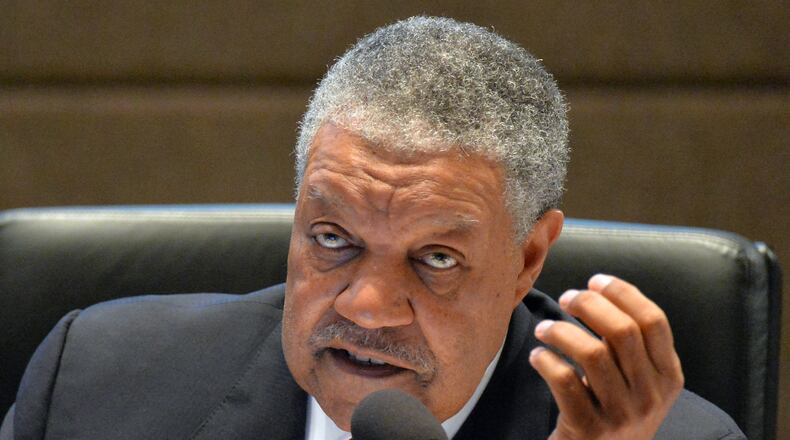For decades, Fulton County taxpayers have paid a penny sales tax to fund MARTA, nurturing an agency that is now seen as critical to the metro area's regional transportation future.
So Fulton officials were angered when the newly formed Atlanta-Region Transit Link Authority board came together late last year and none of the county's leaders got a seat at the table. Top elected officials of neighboring jurisdictions, including the mayor of Atlanta and the the county's top elected officials in both Gwinnett and DeKalb counties, have board seats for the new agency that will oversee transit across metro Atlanta.
Fulton Commission Chairman Rob Pitts has called the Fulton shutout “totally unfair,” and said he is concerned that the county’s needs won’t be adequately represented on the 16-member board, which is responsible for drafting a regional transit plan, controlling transit priorities and allocating funds.
“I don’t know of anything bigger than this for the next 30 or 40 years,” Pitts said.
VIDEO: More on the future of transit
The frustration came to a head on Wednesday in the state's most populous county, when Fulton commissioners voted to replace their lobbying firm, Peachtree Government Relations. Fulton County Manager Dick Anderson said the firm was "not effective" in ensuring the county was represented on the ATL board.
“That one miss was significant, and it has implications going well into the future,” he said.
The board will oversee transit funding and planning in 13 metro Atlanta counties and was created last year by the state legislature as a vehicle to foster cooperation for transit across county lines. MARTA now serves only Fulton, DeKalb and Clayton counties, while other counties have their own local transit services. Gwinnett residents, in March, will vote on whether to join MARTA.
Five of the ATL board's members are appointed by state officials, and 10 are elected in districts by state legislators and local elected officials. The commissioner of the Georgia Department of Transportation also serves as a non-voting member.
Atlanta and DeKalb County, which have also been paying into the MARTA system for decades, have no guaranteed seats. But DeKalb CEO Michael Thurmond, along with Atlanta Mayor Keisha Lance Bottoms, each won district elections to the board last fall. Gwinnett Chairman Charlotte Nash was appointed to the authority as the representative of Georgia Speaker of the House David Ralston.
Pitts was not surprised he lost the election for District 3, which includes parts of north Fulton, Cobb, DeKalb and Gwinnett counties. Steve Dickerson, a Sandy Springs resident and retired Georgia Tech professor who specialized in urban transportation, won the seat.
Fulton commissioners said they are concerned that the county won’t have its voice heard or be able to fully participate in discussions.
“I’m talking about what’s right and good for the region,” Pitts said. “We’ve funded it through the years. It’s only right we would have a guaranteed seat at the table.”
THE ATL BOARD
The Atlanta Transit Link Authority, or ATL board, was created last year to help create a regional transit plan. The board is made up of five members appointed by state officials and 10 members elected by local leaders across 13 metro counties. The members include developers, politicians and transportation experts, among others. The Georgia Department of Transportation has a non-voting seat on the 16-member board.
About the Author
Keep Reading
The Latest
Featured




